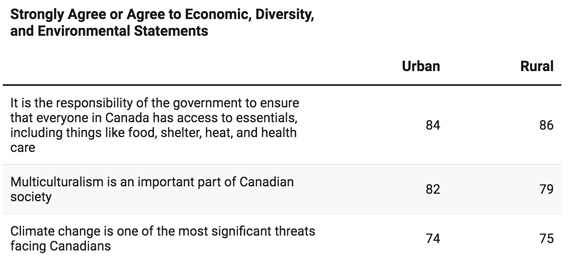Co-author is a Professor of Sociology at �¼������ϲʿ���ֱ��. Co-author is a master's student in Sociology at Dal.
In 2015, the Liberals came to power with their progressive platform and promise to do politics differently, contrasting Justin Trudeau’s with the austere conservatism of Stephen Harper. Much has changed since then.
Increasingly, pundits warn that divisive politics are taking root and that the next federal election could be shaped by . Despite alarm over increasing polarization, however, there are “supermajorities” in Atlantic Canada across a number of economic, social and environmental issues. In other words, there are lot of issues on which Atlantic Canadians can find agreement.
Headlines have been filled with stories of “” and coming to Canada, as well as concern over how “dog-whistle” politics might influence the next election.
Pollster Nik Nanos, for instance, fears that politicians will appeal to and polarization to mobilize political bases in the upcoming election cycle.
Others warn that “” will be exploited in order to divide Canadians. Much attention is given to the Canadian iteration of the , which has intersections across each of these issues. Many of those participating in the yellow vest movement feel ignored by mainstream parties and academics and pundits warn they are .
The strong and vocal differences amplified by news media, however, cast a shadow over the great number of issues on which most Canadians seem to agree.
Supermajorities
can be found on economic, social, and environmental issues. Such majorities span across party affiliations, urban and rural populations and generations. The term is usually used in the context of procedural votes needed to enact legislation, typically meaning two-thirds or three-fifths support. We apply the concept here to .
A report we released as part of the project on Atlantic Canadians’ political views shows that large numbers of Atlantic Canadians agree on a wide range of issues. For example, 71 per cent of Atlantic Canadians surveyed agreed or strongly agreed that the minimum wage should be raised substantially and 85 per cent felt the same about the government’s responsibility to ensure that all Canadians have access to essentials such as food, shelter, heat and health care.
�¼������ϲʿ���ֱ�� 80 per cent also agreed or strongly agreed that multiculturalism is an important part of Canadian society, and the same number were also in agreement that it is important for Canadian society to be open to diverse lifestyles and forms of self-expression. More than half of participants, 55 per cent, agreed or strongly agreed that the country would benefit if more members of minority groups held positions of power.
Three-quarters of participants viewed climate change as one of the most significant threats facing Canada today. A large majority of participants likewise approved of further government action to reduce this threat, as well, with 79 per cent agreeing or strongly agreeing that they would support stronger governmental regulation of corporate environmental practices.
A rural-urban divide?
Much has been made of divisions on these issues between urban and rural areas or among generations in the U.K, the U.S. and even Canada. Our analysis shows that in Atlantic Canada such differences are overblown. We believe people . Instead, far less flashy supermajorities hold across demographic categories on many economic, social and environmental issues.
There are large majorities and little differences in the results when urban and rural residents are surveyed on issues such as the government’s responsibility to ensure that everyone in Canada has access to essentials. The same is the case with the idea that multiculturalism as an important part of Canadian society as well as concern that climate change is one of the most significant threats facing the country today.

The same consistency is also found across age groups.
Supermajorities are also found in the rest of Canada, too. For example, the polling and research firm finds a high level of so-called “affordability anxiety” in Canada, with most Canadians viewing financial insecurity as a primary concern.
Polling by , moreover, finds that 77 per cent of Canadians surveyed agreed that immigration has a positive impact on the economy. On climate change, finds that supermajorities of Canadians agree that the consequences of inaction will be severe, very severe or catastrophic.
Yet, despite such clear consensus on many issues, news media attention and comments by expert pundits continue to focus on polarized politics.
The result is that the national news discussion of political and social issues in Canada is being hijacked by the amplification of the views and ideologies that are espoused by only a minority of its residents.
Tapping into these latent supermajorities, therefore, could be a winning strategy in October for any party willing to step back from divisive politics and engage, instead, with areas of emerging consensus. For media, academics and policymakers, the onus is also on all of us not to amplify the politics of division or mistake vocal minorities for the majority. A healthier democracy begins with the recognition of supermajorities as a starting point for political action.![]()
which features includes relevant and informed articles written by researchers and academics in their areas of expertise and edited by experienced journalists.
�¼������ϲʿ���ֱ�� is a founding partner of The Conversation Canada, an online media outlet providing independent, high-quality explanatory journalism. Originally established in Australia in 2011, it has had more than 85 commissioning editors and 30,000-plus academics register as contributors. A full list of articles written by �¼������ϲʿ���ֱ�� academics can be found on .

